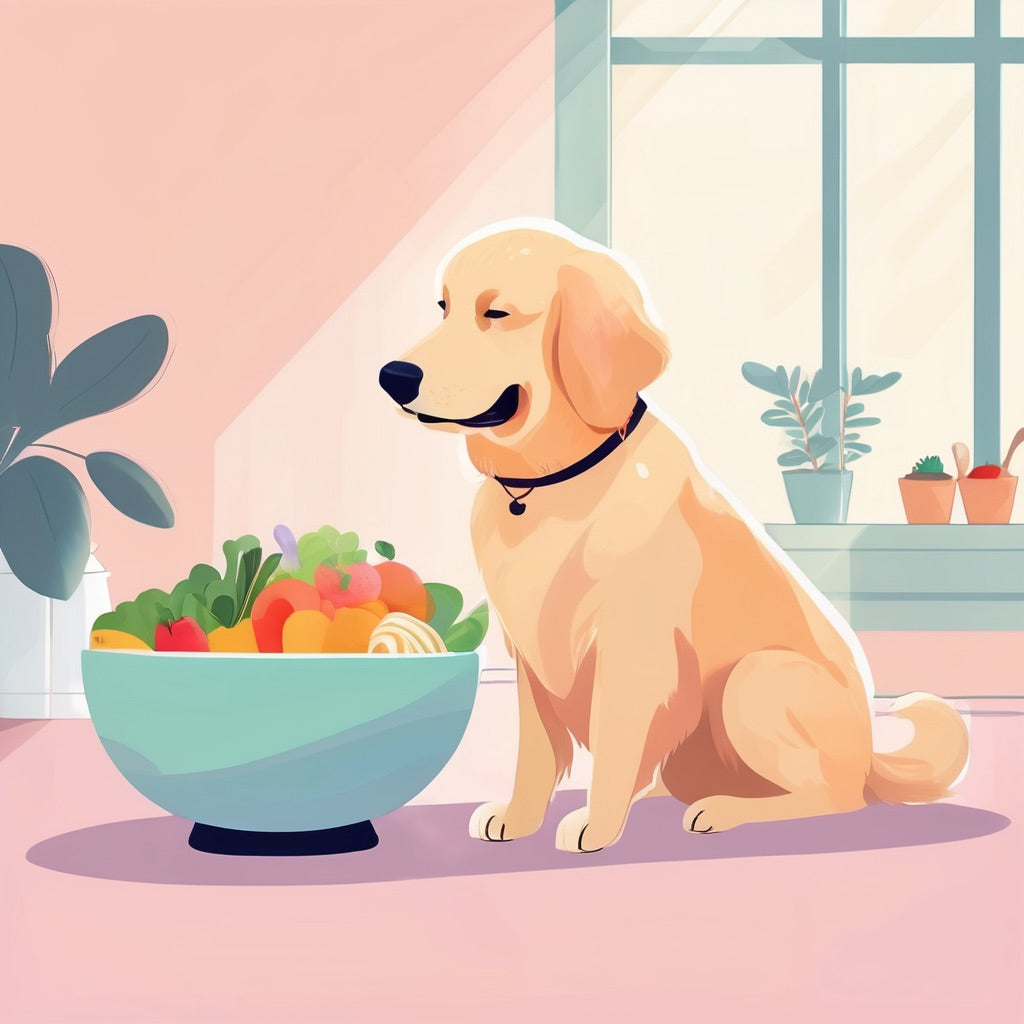
Fresh Dog Food for Senior Dogs: The Complete Guide to Keeping Your Gray-Muzzled Friend Healthy 🐕
Share
Fresh Food Guide for Senior Dogs | Nutrition & Care Tips
Is your furry friend starting to show those adorable gray hairs? Just like us, our four-legged companions need different nutrition as they age. Let's dive into why fresh dog food might be the game-changer your senior pup needs!
Key Points
- Fresh dog food provides easier digestion and better nutrient absorption for senior dogs. [1, 5]
- Natural, anti-inflammatory ingredients can help manage common aging issues like joint pain.
- Proper portion control and a gradual transition are essential when changing your senior dog's diet.
Why Fresh Food Matters More for Senior Dogs

Remember when your pup could eat anything without issues? As dogs age, their digestive systems become more sensitive. Fresh food isn't just a fancy trend—it's a practical solution for aging dogs.
Here’s why it makes a difference:
- Easier to Digest: Less processing means the food is gentler on the stomach.
- Higher Moisture Content: Crucial for hydration in senior dogs who may not drink enough water.
- Better Nutrient Absorption: The body can more easily absorb vitamins and minerals from whole foods.
- Fewer Additives: Lower in preservatives and artificial ingredients that can cause inflammation.
The Nutritional Needs of Your Senior Buddy
Let's break down what your gray-muzzled friend really needs to thrive.
Protein Power
Your senior dog needs more high-quality protein, not less, to maintain muscle mass. Aim for:
- 25-30% high-quality protein in their diet.
- Easily digestible sources like chicken, turkey, or fish.
- Lean options to prevent unnecessary weight gain.
Fat Facts
Healthy fats are vital, but moderation is key. Senior dogs need:
- Moderate fat levels (around 10-12%).
- A focus on Omega-3 fatty acids for joint health and cognitive function.
- Quality sources like fish oil and flaxseed.
Top Fresh Food Ingredients for Senior Dogs

Wondering what should go into your senior dog's bowl? Here's a great starting list:
- 🥕 Sweet Potatoes: Easy to digest and packed with vitamins.
- 🐟 Salmon: An amazing source of Omega-3s for joint health.
- 🥦 Broccoli: Contains cancer-fighting properties and fiber.
- 🥚 Eggs: A complete and easily digestible protein source.
- 🎃 Pumpkin: Fantastic for promoting healthy digestion.
Making the Switch: A 2-Week Transition Plan
Hold on! Don't switch your senior dog's food overnight. A slow transition is crucial to avoid digestive upset. Follow this simple plan:
Week 1: Go Slow
- Days 1-3: 75% old food, 25% fresh food
- Days 4-7: 50% old food, 50% fresh food
Week 2: Almost There
- Days 8-10: 25% old food, 75% fresh food
- Days 11-14: 100% fresh food!
Portion Control for Senior Dogs

Seniors generally need fewer calories but more nutrients. It's a balancing act! Here’s how to get portions right:
- Calculate calories based on their ideal weight, not their current weight.
- Reduce portions by about 20-30% compared to their active adult years.
- Consider feeding smaller, more frequent meals to aid digestion.
Common Concerns and Solutions
When to Consult Your Vet

Always partner with your vet when making dietary changes. Talk to them if you notice:
- Sudden weight changes (gain or loss).
- Persistent digestive issues.
- A significant loss of appetite or changes in energy levels.
Furry Green's Food for Senior Dogs
Ready to make the switch? These vet-approved recipes are perfect for senior dogs.
Frequently Asked Questions
Why is fresh food better than kibble for senior dogs?
Fresh food is superior for senior dogs because it is easier to digest, has higher moisture content, and allows for better nutrient absorption compared to highly processed kibble. It also contains fewer preservatives and artificial ingredients, which is beneficial for a senior dog's sensitive system.
How much protein does my senior dog need?
Contrary to some beliefs, senior dogs often need more high-quality protein to maintain lean muscle mass. This guide recommends a diet consisting of 25-30% high-quality, easily digestible protein from sources like chicken, turkey, or fish.
Is it safe to switch my senior dog to fresh food suddenly?
No, you should never switch your senior dog's food overnight. A gradual transition over a two-week period is crucial to allow their digestive system to adapt. Start by mixing 25% new food with 75% old food and slowly increase the proportion of new food every few days.
Love Through Fresh Food
Your senior dog has given you years of unconditional love. Now it's time to return the favor with the best nutrition possible. Remember, it's never too late to make a positive change—your furry friend's golden years can be their best years! 🐾
Want to give your senior the best? Explore our full range of fresh food designed for every life stage.
Shop All Fresh Food